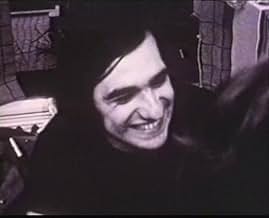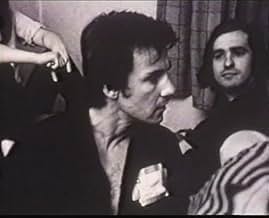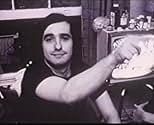Ajouter une intrigue dans votre langueIn the late Spring of 1970, nationwide protests against the war in Vietnam focused in the Wall Street area of New York City and ultimately in a major anti-war demonstration in Washington, D.... Tout lireIn the late Spring of 1970, nationwide protests against the war in Vietnam focused in the Wall Street area of New York City and ultimately in a major anti-war demonstration in Washington, D.C. A group of New York University film students documented the demonstrations as they happ... Tout lireIn the late Spring of 1970, nationwide protests against the war in Vietnam focused in the Wall Street area of New York City and ultimately in a major anti-war demonstration in Washington, D.C. A group of New York University film students documented the demonstrations as they happened in both cities. Later, in New York, the massive amount of black and white and color 1... Tout lire
Avis à la une
Finally, after decades of hunting, I managed to see it. It did not disappoint. In fact, I was quite surprised by how much of Scorsese's signature touches were prevalent throughout. The filmmaking is raw (1.33:1, mostly black-and-white 16MM with some color sequences, handheld camerawork with little attention paid to elegant framing), but it excels as a vessel for information - in this case, mostly about a protest march on Wall Street, including interviews with the anti-war protestors (most of them college age) as well as the buttoned-down spectators who came to shake their heads at those doing the marching, and later a similar march in Washington, D.C.
The filmmaking is energetic and even somewhat stylized, complete with frequent bursts of classic rock in the soundtrack (Blind Faith's "Had To Cry Today" is the first song heard, over shots of riot squad members standing by with their helmets on and their clubs menacingly in hand). It all has an immersive element, owing not only to the compelling techniques on parade, but to the looming skyscrapers that surround the event being documented, creating an urban backdrop that makes for a very unique-looking environment.
Unfortunately, when the march is over and the movie retires to a hotel room where Scorsese, Harvey Keitel, Verna Bloom and other artistically-minded anti-war activists sit around pontificating about the worth of their media-based contributions to the protest movement, the film downshifts considerably and things become less compelling. However, it's still amusing - and, at times, fascinating - to hear some of the exchanges being recorded.
In all, this documentary - which was heavily influenced by the aesthetic of documentary filmmakers D.A. Pennebaker, Frederick Wiseman and The Maysles Brothers - is fascinating not only for rabid fans of the director's later work, but as a vivid document of a nightmarish time in which the war (and the draft) seemed to never end, and the act of public protesting was nearly as potentially dangerous as military combat itself. I feel it's a strong work and ought to be released.
As of this writing, The Criterion Collection has just announced the Blu-Ray release of Scorsese's early short films, and I'm certain that the people at Criterion tried in vain to get Scorsese to release this documentary as well. At this stage, it appears highly unlikely that the movie will ever enjoy a legitimate release on home video in any format, and that's a real shame. If people were able to see it, they might finally realize that TAXI DRIVER and THE IRISHMAN are - above all else - anti-war statements, both featuring heartless protagonists whose deep-rooted emotional scarring (and capacity for violence without subsequent remorse) stems largely - if not entirely - from their service in the American military.
Le saviez-vous
- ConnexionsReferenced in The Directors: The Films of Martin Scorsese (2000)
Meilleurs choix
- How long is Street Scenes?Alimenté par Alexa
Détails
- Date de sortie
- Pays d’origine
- Site officiel
- Langue
- Aussi connu sous le nom de
- Street Scenes 1970
- Lieux de tournage
- Ville de New York, New York, États-Unis(location)
- Société de production
- Voir plus de crédits d'entreprise sur IMDbPro
- Durée1 heure 15 minutes
- Couleur
- Mixage
- Rapport de forme
- 1.33 : 1
Contribuer à cette page





















